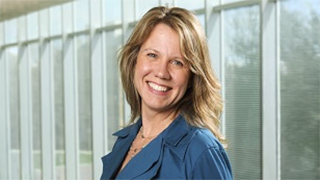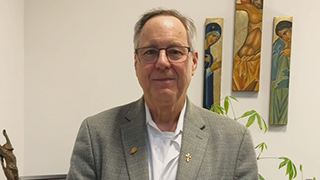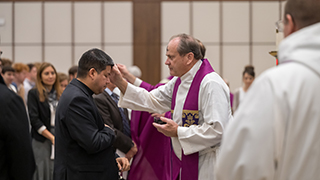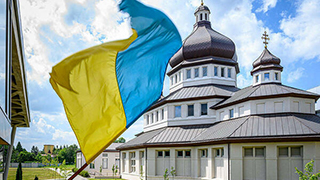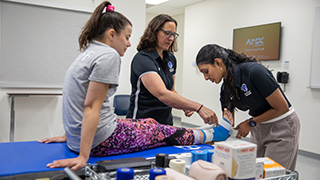Inside the Core We Celebrate Monsignor Fahy
Thursday, August 28, 2025
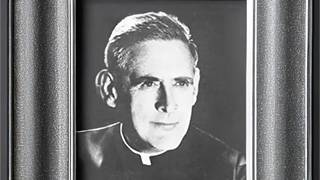
Msgr. Thomas Fahy, President of Seton Hall, 1970-1976
Inside the Core this week, we begin our Core I classes with the Inaugural Address of Monsignor Fahy, when he became president of Seton Hall in 1970. This text is extremely important as it sets the stage for what follows in Core I as Msgr.
Fahy raises the question of whether or not education has become morally and ethically irrelevant. At that time, many young people were questioning the validity of higher education because they felt it did not address current moral and ethical problems in the world. Fahy argues that there is truth to that charge, but counters it by showing how education does not have to be that way. In fact, he makes the point that education, particularly at a Catholic institution where ethical considerations should be at the heart of all we do, needs to bring the wisdom of its disciplines to the problems of the day.
In his speech, Fahy says, “No one, of course, seriously thinks that higher education is or has ever been totally irrelevant. What our critics really mean is that some of our teachings may be irrelevant and much more serious that we have not actually related to the solution of man’s problems many of our teachings which have an objective and intrinsic relevance. Even when we were quite aware of their relevance.” He goes on to give examples of how in various ways education at the time was not addressing specific societal problems, in every area; here is one instance: “… our sociologists and our theologians have taught that no society can be permanently happy or expect God’s blessings when significant numbers of its citizens are grievously deprived of their share of freedom and prosperity and are denied the respect and self-respect that go with being full members of society. But we have been turning out generations of students who can be generally complacent about the situation….” He presents this challenge, specifically directed to his audience at Seton Hall in 1970, but just as pertinent to us at Seton Hall today:
Catholic colleges have a strong tradition of offering moral value-judgments and offer quickly what the students seem to want. They also enjoy a wide measure of independence and freedom from constitutional and statutory prohibitions against offering such judgments.
This is only one of the many reasons why I think Seton Hall can survive only as she is – a well-organized, well-run, an independent, private, Catholic University.
Here at Seton Hall, he worked with students and faculty to develop the Black Studies Center, as it was called at the time, and the Puerto Rican Institute at Seton Hall. He also lived out his beliefs by advocating for causes beyond the walls of Seton Hall, in keeping with the values of Catholic social teaching, as we see in his support of migrant farm workers and Cesar Chavez in the 1970s.
To celebrate the legacy of Msgr. Fahy and introduce him more completely to students and also, at the same time, to serve as a “Charge to the Core,” for our Core faculty as we have had in the past, we are holding a special presentation, “Forum on Courage: How Monsignor Fahy helped me Learn and Lead,” next Thursday, September 4 at 5 p.m. in Schwartz Amphitheater (Room 113), also on Microsoft Teams.
The co-leaders of the event, Jon Radwan of the College of Human Development, Culture, and Media and Angela Kariotis of Brookdale College, have coordinated a dramatic reading of the texts, then presentations by a panel of experts. These experts include Reverend Forrest Pritchett; Monsignor Richard Liddy ( who had Msgr. Fahy as a teacher); Nancy Enright, Director of the Core; and Eva Ruark, student. The presentation will be followed by questions and answers. For those who attend in person, there will be light refreshments. Please join us and register through the calendar event.
Categories: Faith and Service


